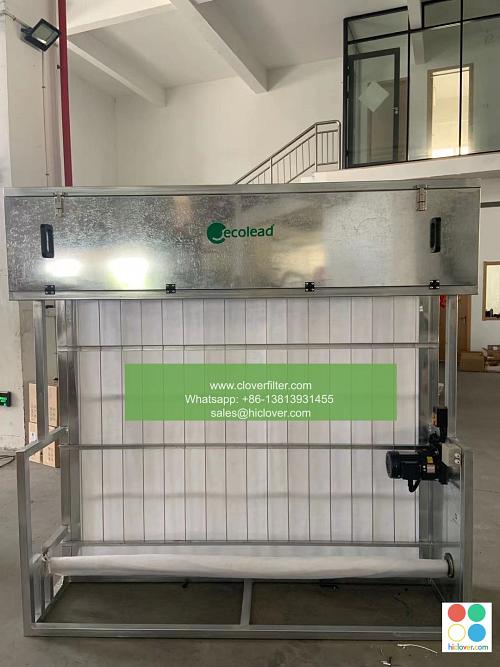Air Filter Ecosystems: The Unsung Heroes of Indoor Air Quality

As we spend more time indoors, the importance of maintaining good indoor air quality (IAQ) cannot be overstated. Air filter ecosystems play a crucial role in ensuring the air we breathe is clean and safe, making them the unsung heroes of IAQ. In this article, we will delve into the world of air filter ecosystems, exploring their application areas, benefits, and the impact they have on our health and wellbeing.
What are Air Filter Ecosystems?
Air filter ecosystems refer to the complex network of air filtration systems, including HEPA filters, activated carbon filters, and UV air purifiers, that work together to remove airborne pollutants and contaminants from the air. These systems are designed to capture a wide range of particles, including particulate matter (PM), volatile organic compounds (VOCs), and microorganisms, ensuring the air is clean and safe to breathe.
Application Areas of Air Filter Ecosystems
Air filter ecosystems have a wide range of applications, including:
* Residential air filtration: Air filter ecosystems are used in homes to remove airborne pollutants and allergens, improving IAQ and reducing the risk of respiratory problems.
* Commercial air filtration: Air filter ecosystems are used in offices, schools, and hospitals to maintain good IAQ, improving productivity and reducing the risk of illness.
* Industrial air filtration: Air filter ecosystems are used in industrial settings to remove airborne pollutants and contaminants, improving worker safety and reducing the risk of environmental pollution.
* Transportation air filtration: Air filter ecosystems are used in vehicles, including cars, buses, and trains, to remove airborne pollutants and improve IAQ during transportation.
Benefits of Air Filter Ecosystems
The benefits of air filter ecosystems are numerous, including:
* Improved indoor air quality: Air filter ecosystems remove airborne pollutants and contaminants, improving IAQ and reducing the risk of respiratory problems.
* Reduced risk of illness: Air filter ecosystems help to reduce the risk of illness by removing airborne pathogens and microorganisms.
* Improved productivity: Air filter ecosystems can improve productivity by reducing the risk of illness and improving cognitive function.
* Energy efficiency: Air filter ecosystems can help to reduce energy consumption by improving the efficiency of heating and cooling systems.
Key Technologies in Air Filter Ecosystems
Some of the key technologies used in air filter ecosystems include:
* HEPA filtration: HEPA filters are capable of capturing 99.97% of particles as small as 0.3 microns, making them a crucial component of air filter ecosystems.
* Activated carbon filtration: Activated carbon filters are used to remove VOCs and other gaseous pollutants from the air.
* UV air purification: UV air purifiers use ultraviolet light to kill airborne microorganisms, improving IAQ and reducing the risk of illness.
Challenges and Future Directions
Despite the many benefits of air filter ecosystems, there are several challenges that need to be addressed, including:
* Cost and accessibility: Air filter ecosystems can be expensive, making them inaccessible to many people.
* Maintenance and upkeep: Air filter ecosystems require regular maintenance and upkeep to ensure they are functioning effectively.
* Standardization and regulation: There is a need for standardization and regulation in the air filter industry to ensure that products are safe and effective.
In conclusion, air filter ecosystems are the unsung heroes of indoor air quality, playing a crucial role in maintaining good IAQ and improving our health and wellbeing. As we move forward, it is essential that we continue to develop and improve air filter ecosystems, addressing the challenges and limitations of current technologies and ensuring that these systems are accessible and effective for everyone. By highlighting the application areas and benefits of air filter ecosystems, we can work towards creating a healthier and more sustainable indoor environment for all. It appears you haven’t provided a prompt or question for me to respond to. Could you please provide more context or clarify what you would like to discuss? I’m here to help and provide information on a wide range of topics.

